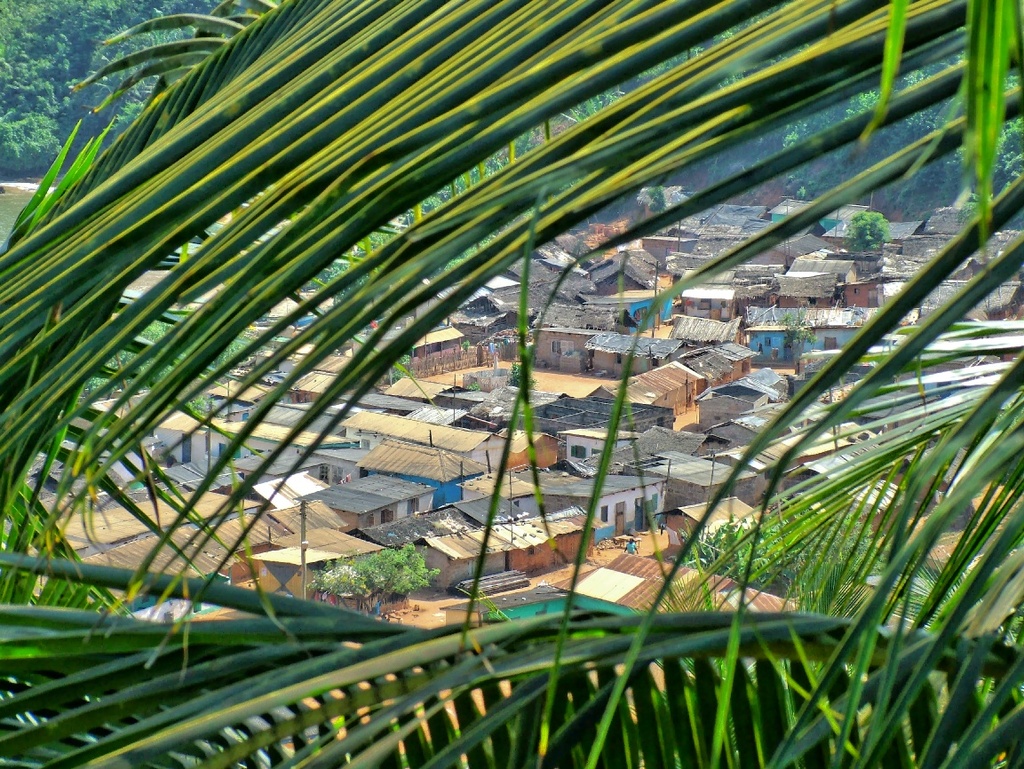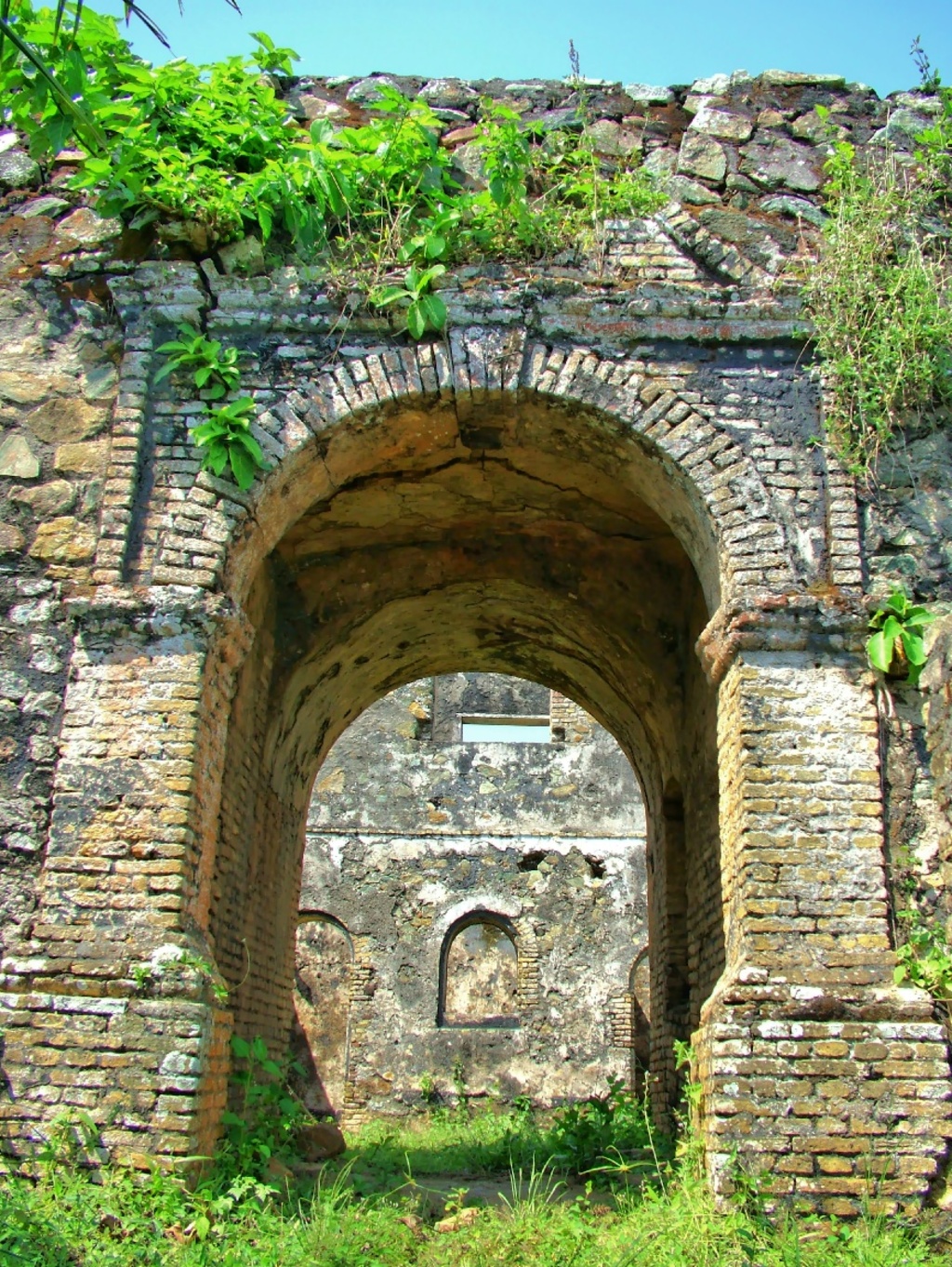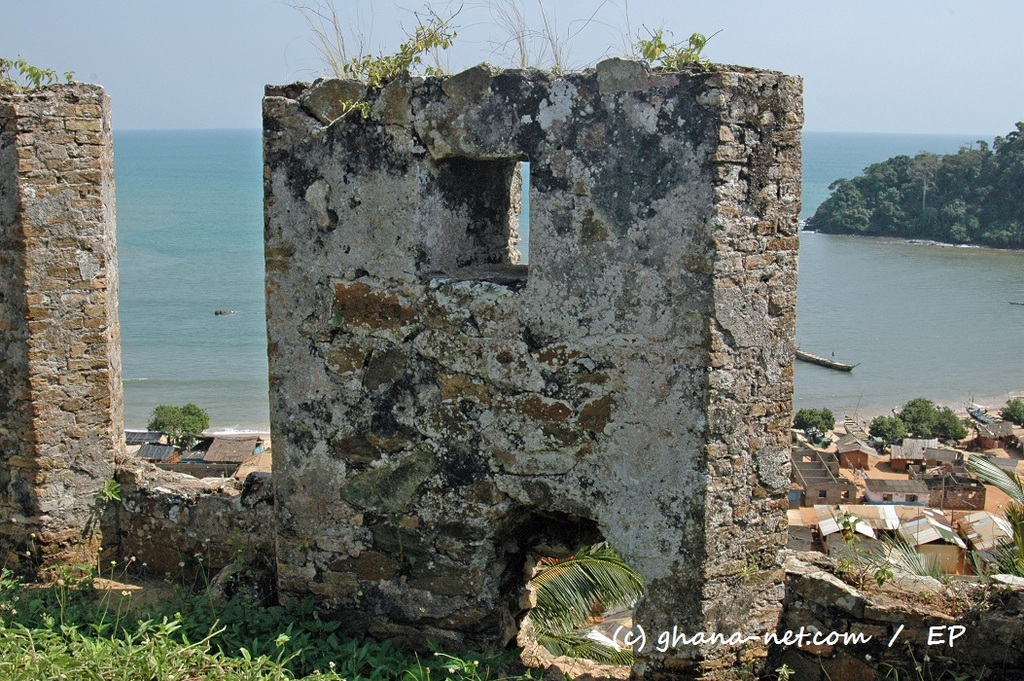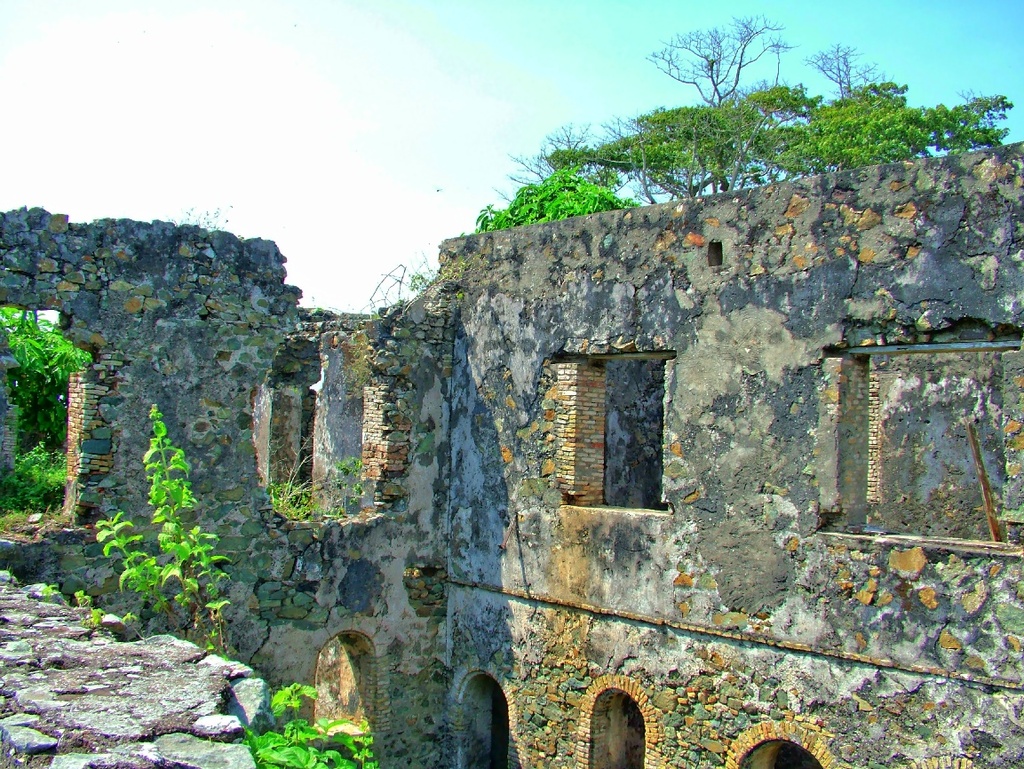
Fort Batenstein is one of Ghana’s preserved coastal forts—silent sentinels that once controlled trade routes, protected European interests, and witnessed the transatlantic slave trade. Unlike the larger and more visited forts of Elmina or Cape Coast, Fort Batenstein offers a more intimate and tranquil experience, surrounded by forested hills and breathtaking views of the Atlantic coastline.
Originally built to control trade and defend Dutch interests in the area, the fort was involved in the fierce European competition along the Gold Coast. It was eventually handed over to the British in 1872, along with the rest of the Dutch possessions in the region. Today, you can still see its bastions, arched doorways, and inner courtyard — all reminders of the fort’s military and commercial importance.
Visitors can explore the ruins while listening to stories of local resistance, European rivalry, and the eventual decline of the fort as political tides shifted. Fort Batenstein stands not only as a relic of empire but also as a place of reflection and education.
Enjoy panoramic views of the coastline from the fort’s high vantage point
Learn about the Dutch presence in Ghana and the fort’s strategic role in the region
Walk through atmospheric ruins surrounded by nature and silence
Pair your visit with a relaxing stop in the nearby fishing village of Butre
If you're looking for a peaceful yet powerful historical site off the beaten path, Fort Batenstein offers exactly that. Its setting, stories, and serenity make it a must-see for heritage travelers.
Nestled along the golden shores of Ghana’s Western Region, just a short distance from Busua and Dixcove, is the serene fishing village of Butre — a place where time slows down, culture thrives, and history rests on a hill.
Butre is not just a scenic stop — it's a village steeped in rich tradition, with deep ties to Ghana’s colonial history. Overlooked by the ruins of Fort Batenstein, Butre was once a point of contention between local communities and colonial powers. Today, it’s a peaceful, welcoming village where visitors can relax, explore, and connect with local life.

View from Fort Batenstein to the village of Butre
Unspoiled Beaches: Butre boasts some of Ghana’s most beautiful, quiet beaches. The coastline here is ideal for swimming, beachcombing, and enjoying ocean sunsets away from crowded tourist spots.
Cultural Encounters: Visitors are often welcomed warmly by locals. You can learn about traditional fishing practices, enjoy fresh seafood, and participate in local events and storytelling.
Nature Trails and Fort Hikes: A short hike through the forested path leads to Fort Batenstein, offering scenic views and an opportunity to explore Ghana’s colonial history firsthand. The trail to the fort is peaceful and shaded, adding a bit of adventure to your historical experience.
Eco-Tourism Opportunities: Butre is increasingly gaining attention for sustainable tourism. Guesthouses, community-run tours, and eco-lodges offer authentic experiences that benefit the local economy.
Historically, Butre was involved in Dutch colonial networks, serving as a support village for Fort Batenstein. Over time, the village witnessed shifting powers and changing alliances, but today it stands as a symbol of resilience and peace.
Butre is perfect for travelers seeking a quiet, meaningful escape that combines nature, history, and community life. Whether you're staying overnight or visiting for a day, Butre promises simplicity, beauty, and heartfelt connection.
Monday
08:00 - 17:30
Tuesday
08:00 - 17:30
Wednesday
08:00 - 17:30
Thursday
08:00 - 17:30
Friday
08:00 - 17:30
Saturday
08:00 - 17:30
Sunday
08:00 - 17:30

Entrance to Fort Batestein, King Badu had to pass before execution! (c) Remo Kurka

View from defense walls of Fort Batenstein to Butre village, and bay of Butre

A view inside Fort Batestein, windows and doorways.